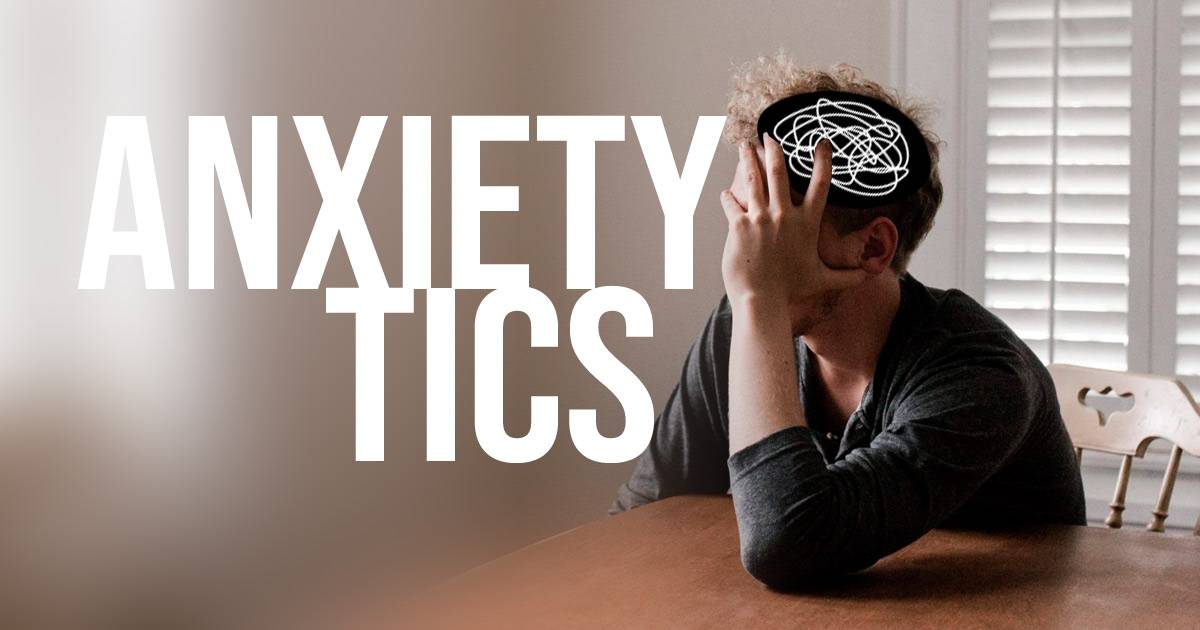The Truth About Anxiety Tics: A Reality or Misconception?

Anxiety is akin to a mystery novel with countless twists and turns. It’s a complex mental health condition that doesn’t limit its impact to the mind but often extends its reach into the physical realm. This intricate relationship between the mind and body can sometimes result in a variety of physical symptoms, adding another layer of complexity to the condition.
A range of studies have highlighted this phenomenon. For instance, a meta-analysis explored the connection between medically unexplained physical symptoms, anxiety, and depression, while another study revealed that patterns of physical health symptoms can provide insights into underlying anxiety conditions.
These physical symptoms can encompass a wide spectrum, from common manifestations such as headaches, stomachaches, and palpitations, to more unusual ones like ‘tics’. You might be wondering, “What exactly are tics?” Well, tics are involuntary, repetitive movements or sounds that our bodies make. They can manifest as anything from blinking or facial grimacing to throat clearing or grunting.
Now, here’s where things get interesting. Can anxiety cause tics? The answer is yes. In fact, severe anxiety can indeed trigger what we refer to as ‘anxiety tics’. But what do these tics look like and how do they impact individuals suffering from anxiety?
Tics and Anxiety: Unraveling the Connection
First off, let’s clarify what we mean when we talk about tics and anxiety. While they may seem similar, they are distinct in their own ways. A tic, as we mentioned earlier, is an involuntary, repetitive movement or sound. It’s like a little glitch in your system that makes you blink excessively, twitch, or even make certain sounds.
On the other hand, anxiety is a mental health condition characterized by persistent worry, fear, or nervousness. It’s that nagging feeling of unease that keeps you up at night or that sudden rush of panic that hits you out of nowhere.
Now, onto the big question: Are anxiety tics real? The answer is a resounding yes. When a person is experiencing high levels of stress or anxiety, their body can respond in a variety of ways, and one of these can be the development of tics. It’s as if your body is saying, “Hey, I’m not okay with all this stress. Here’s a sign.”
So, what exactly do anxiety tics look like? They can vary from person to person, but some common examples include:
- Blinking excessively or uncontrollably
- Jerking or twitching of the head or limbs
- Making unintentional sounds such as grunting, coughing, or clearing the throat
- Repetitive shrugging of the shoulders
- Facial grimacing
These tics often increase during times of heightened anxiety and stress and lessen during periods of relaxation. It’s important to note that while these tics can be bothersome, they’re your body’s way of coping with the anxiety. Understanding this can be the first step towards managing them effectively.
Causes and Implications of Anxiety Tics
The development of tics in individuals with anxiety can be a complex process, typically influenced by a combination of factors. Stress is often a major trigger, as high levels of anxiety can put the nervous system into overdrive, leading to involuntary movements or sounds.
Underlying neurological conditions, genetic predispositions, or imbalances in certain brain chemicals may also contribute to the development of tics. Furthermore, lifestyle factors such as lack of sleep, excessive caffeine intake, and substance use can exacerbate these symptoms.
Let us now discuss the meaning behind these tics. For individuals experiencing them, anxiety tics can be more than just physically uncomfortable. They may also cause self-consciousness or feelings of embarrassment, especially in social settings. This increased self-awareness has the potential to worsen anxiety levels, starting a vicious cycle that can be difficult to break.
In terms of lifestyle, these tics can potentially interfere with everyday activities. For instance, a person with a blinking tic might find it difficult to focus on tasks that require visual attention, such as reading or driving. Similarly, vocal tics could pose challenges in quiet environments like libraries or during meetings.
The social implications can be equally challenging. People with noticeable tics might feel hesitant to engage in social situations for fear of drawing attention to their symptoms. This can lead to feelings of isolation and could potentially impact personal relationships.
Treatment and Management: Navigating Life with Anxiety Tics
Living with anxiety tics might seem daunting, but the good news is that there are a variety of treatment and management options available. These can significantly reduce the frequency and severity of tics, and in some cases, may even eliminate them completely.
One common form of treatment is cognitive-behavioral therapy (CBT). This form of therapy helps individuals understand how their thoughts and feelings influence their behaviors and equips them with strategies to manage their anxiety and, consequently, their tics.
In some cases, medication might be recommended. Certain types of drugs, such as anti-anxiety medications or neuroleptics, can help manage tics by regulating certain chemical imbalances in the brain.
Making changes to one’s lifestyle can also be very helpful in controlling anxiety tics. A healthy diet, regular exercise, enough sleep, and mindfulness exercises like meditation can all improve general wellbeing and lessen the severity of tics.
As for the question of whether anxiety tics can be cured, it’s important to remember that everyone’s experience with anxiety and tics is unique. While some people might see their tics disappear completely with treatment, others might continue to experience them, albeit at a reduced severity.
Regardless, living a normal life with anxiety tics is absolutely possible. With the right treatment, support, and self-care strategies, individuals with anxiety tics can manage their symptoms effectively and engage fully in all aspects of life. Remember, having tics doesn’t define you or limit your potential. It’s just one part of your journey, and with the right tools, you can navigate this path successfully.
